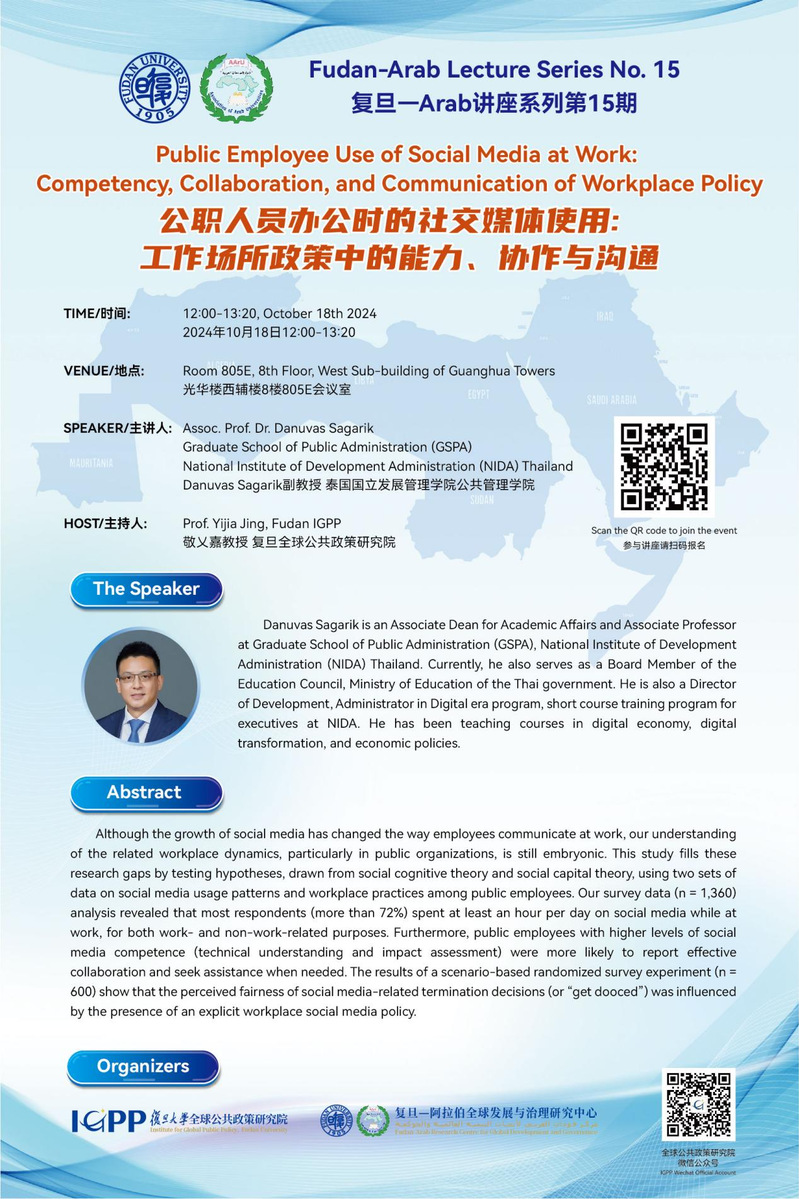
Fudan-Arab Lecture Series No.15
Title:
Public Employee Use of Social Media at Work: Competency, Collaboration, and Communication of Workplace Policy
Speaker:
Assoc. Prof. Dr. Danuvas Sagarik, Graduate School of Public Administration (GSPA), National Institute of Development Administration (NIDA) Thailand
Host:
Prof. Yijia Jing, Fudan IGPP
Time:
12:00-13:20, October 18th 2024
2024年10月18日12:00-13:20
Venue:
Room 805E, 8th Floor, West Sub-building of Guanghua Towers
Please click the link to sign up

The Speaker:

Danuvas Sagarik is an Associate Dean for Academic Affairs and Associate Professor at Graduate School of Public Administration (GSPA), National Institute of Development Administration (NIDA) Thailand. Currently, he also serves as a Board Member of the Education Council, Ministry of Education of the Thai government. He is also a Director of Development, Administrator in Digital era program, short course training program for executives at NIDA. He has been teaching courses in digital economy, digital transformation, and economic policies.
Abstract:
Although the growth of social media has changed the way employees communicate at work, our understanding of the related workplace dynamics, particularly in public organizations, is still embryonic. This study fills these research gaps by testing hypotheses, drawn from social cognitive theory and social capital theory, using two sets of data on social media usage patterns and workplace practices among public employees. Our survey data (n = 1,360) analysis revealed that most respondents (more than 72%) spent at least an hour per day on social media while at work, for both work- and non-work-related purposes. Furthermore, public employees with higher levels of social media competence (technical understanding and impact assessment) were more likely to report effective collaboration and seek assistance when needed. The results of a scenario-based randomized survey experiment (n = 600) show that the perceived fairness of social media-related termination decisions (or “get dooced”) was influenced by the presence of an explicit workplace social media policy.





